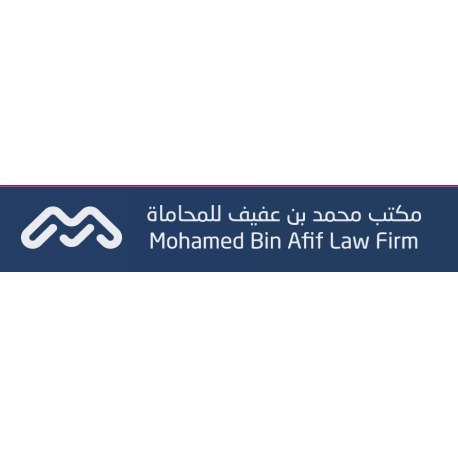Best Housing, Construction & Development Lawyers in Jeddah
Share your needs with us, get contacted by law firms.
Free. Takes 2 min.
Free Guide to Hiring a Real Estate Lawyer
List of the best lawyers in Jeddah, Saudi Arabia

About Housing, Construction & Development Law in Jeddah, Saudi Arabia
In Jeddah, Saudi Arabia, the Housing, Construction & Development sector operates under a stringent set of laws and regulations managed by governmental bodies like the Ministry of Housing and Ministry of Municipal and Rural Affairs. These laws cover a vast range of issues like land use, building codes, construction standards, public safety, and property rights. This legal framework ensures the sustainable growth of urban centers, promotes real estate development, and protects the rights of property owners, contractors, residents, and developers.
Why You May Need a Lawyer
Legal issues related to Housing, Construction & Development are often complex and multi-dimensional. Typical situations where you may require legal consultation include drafting or reviewing construction contracts, resolving property disputes, acquiring permits and licenses, ensuring compliance with zoning rules, managing eviction proceedings, and dealing with legal disputes arising from construction defects or delays. A knowledgeable lawyer in this field can help to navigate these complicated legal terrains and protect your rights and interests.
Local Laws Overview
Saudi Arabian laws related to Housing, Construction & Development are primarily aimed at regulating the use of land, ensuring the quality and safety of buildings, protecting consumers, and fostering community development. This implies that constructors must adhere to strict building and safety codes and that properties must meet certain conditions before their sale or lease. Property rights are also well-defined, and there are legal safeguards against unjust eviction or dispossession. Another critical aspect of these laws involves regulatory compliances for property transactions to curb illegal activities like money laundering or fraud.
Frequently Asked Questions
Can foreigners own property in Jeddah?
Yes, Saudi Arabian law allows foreigners to own properties in the country, excluding Mecca and Medina. However, this requires the approval from The Ministry of Justice.
What are the safety regulations for construction sites in Jeddah?
Construction sites must strictly adhere to the safety norms as prescribed by the Saudi Standards, Metrology and Quality Organization
How are property disputes resolved in Jeddah?
Property disputes are usually resolved through the Saudi Arabian judicial system. However, alternative dispute resolution methods like arbitration and mediation are gaining popularity.
Do I need a permit to build a property in Jeddah?
Yes, you must obtain a construction permit from the Jeddah Municipality to build a property.
What are the zoning laws in Jeddah?
Zoning laws define the type of properties that can be developed in specified areas. The rules differ by area and it is crucial to understand these before launching construction projects.
Additional Resources
You can refer to the Ministry of Housing, Ministry of Municipal and Rural Affairs, and Saudi Standards, Metrology and Quality Organization websites for further guidance. The Saudi Arabian General Investment Authority also provides useful resources for foreign investors.
Next Steps
If you find yourself needing legal assistance in Housing, Construction & Development in Jeddah, the first step is to find a local law firm or lawyer who specializes in this field. It is vital that your legal counsel be well-versed with the local laws, practices, and culture. Also, remember to prepare all relevant documents and details concerning your case to provide a strong foundation for your legal representation.
Lawzana helps you find the best lawyers and law firms in Jeddah through a curated and pre-screened list of qualified legal professionals. Our platform offers rankings and detailed profiles of attorneys and law firms, allowing you to compare based on practice areas, including Housing, Construction & Development, experience, and client feedback.
Each profile includes a description of the firm's areas of practice, client reviews, team members and partners, year of establishment, spoken languages, office locations, contact information, social media presence, and any published articles or resources. Most firms on our platform speak English and are experienced in both local and international legal matters.
Get a quote from top-rated law firms in Jeddah, Saudi Arabia — quickly, securely, and without unnecessary hassle.
Disclaimer:
The information provided on this page is for general informational purposes only and does not constitute legal advice. While we strive to ensure the accuracy and relevance of the content, legal information may change over time, and interpretations of the law can vary. You should always consult with a qualified legal professional for advice specific to your situation.
We disclaim all liability for actions taken or not taken based on the content of this page. If you believe any information is incorrect or outdated, please contact us, and we will review and update it where appropriate.
















